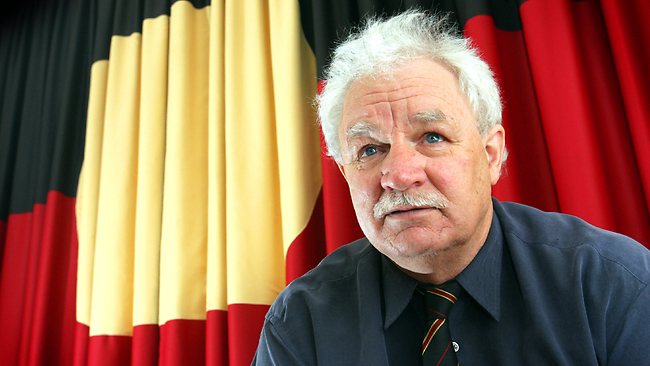Aboriginal empowerment won’t come from a Voice to parliament, but through authority
By Michael Mansell

Published in The Mercury, Talking Point, pages 16 – 17
The Greens have good reason to consider if the Voice might undermine or block Aboriginal sovereignty.
In the context of empowerment, sovereignty means Aboriginal people decide Aboriginal policy. Sure, those decisions have to take account of modern white Australia’s existence, but the fundamental point remains that we, as a sovereign people, decide, not others. By contrast, by merely advising parliament, the Voice endorses the right of others to decide. The advisory voice is at complete odds with sovereignty.
The constitution is the white people’s constitution. It defines the political and legal structures that founded the nation of Australia. Aboriginal sovereignty began well before the constitution and Aboriginal people draw our strength and aspirations from that history.
Both white and black sovereignty can stand together, but entrenching an inferior Voice in the parliament, by necessary implication, surrenders our sovereign independence. White people have not yet legitimised Aboriginal sovereignty through a treaty or other action, but the Voice proposal legitimises the white constitution’s jurisdiction over Aboriginal people.
It needs to be remembered that there is not one sovereign in Australia. Constitutional sovereignty is divided up among six states and a federal parliament. If men in the decade before 1901 could find a way for seven entities to share sovereignty across the continent, why can’t Australia today do the same with eight, inclusive of Aboriginal sovereignty?
Voice advocates describe themselves as “Aboriginal Australians”, the constitution as “ours”; they accept Australia Day awards (imagine Palestinians being named Israeli of the Year!). They pay lip service to Aboriginal sovereignty while adopting the full lifestyle and political indoctrination that goes with assimilation – apart from their skin colour, they are absorbed. The advisory Voice to parliament is just another example of the culturally destructive process that comes from devious stealth-like claims of empowerment.
Peter Dutton and Julian Leeser have proposed a constitutional convention about the Voice. We need a national convention about treaty.
The $5m allocated to treaty should be used now to fund such a convention. In the context of the national political distribution of power, metaphorically, former Greens senator Lidia Thorpe brings sovereign rights as a fugal strand to a national cloth, one that retains some degree of Aboriginal independence. On the other hand, the Voice proposal, again metaphorically, merely comments on the colour of the fabric.
Aboriginal empowerment does not depend on token recognition in the constitution but should be recognised as an independent source of legitimate authority through legislation proposed by Aboriginal communities. Fred Maynard and the insightful David Unaipon advocated such in the 1920s. Discrete Aboriginal communities could regain authority over community behaviour. With government backing, communities could regain control over policing, housing, health and education, land use and planning and distribution of resources.
This is what Aboriginal people have been crying out for, not some silly Voice to parliament. Mutual respect and cooperation is promoted when parliaments give back to Aborigines some of their hold over Aboriginal policy.
Voting for an inferior Aboriginal Voice in the constitution might make many well-meaning whites feel warm and fuzzy but that outcome will do nothing to meet the human rights needs of Aborigines.
The question for the Greens (as with other political parties) is, as a matter of national policy, whether Aborigines are to be encouraged to have working relationships with Australia’s institutions or be coerced into being absorbed by them.
Michael Mansell is a Tasmanian Aboriginal leader, activist and lawyer and the chairman of the Aboriginal Land Council of Tasmania.

